When I ask Eunice Kaigai about her lodge in Maasai Mara, the first thing she says is that “anyone who doesn’t know Ngerende is not rich enough.”
The group I’m travelling with bursts out laughing, probably thinking that it is a welcoming joke but she maintains a straight face.
Ms Kaigai is among the few Kenyans who own three lodges and hopes to compete with the likes of Sir Richard Branson, the owner of Mahali Mzuri and a few other wealthy Indians who have built luxury tented camps in the wilderness.
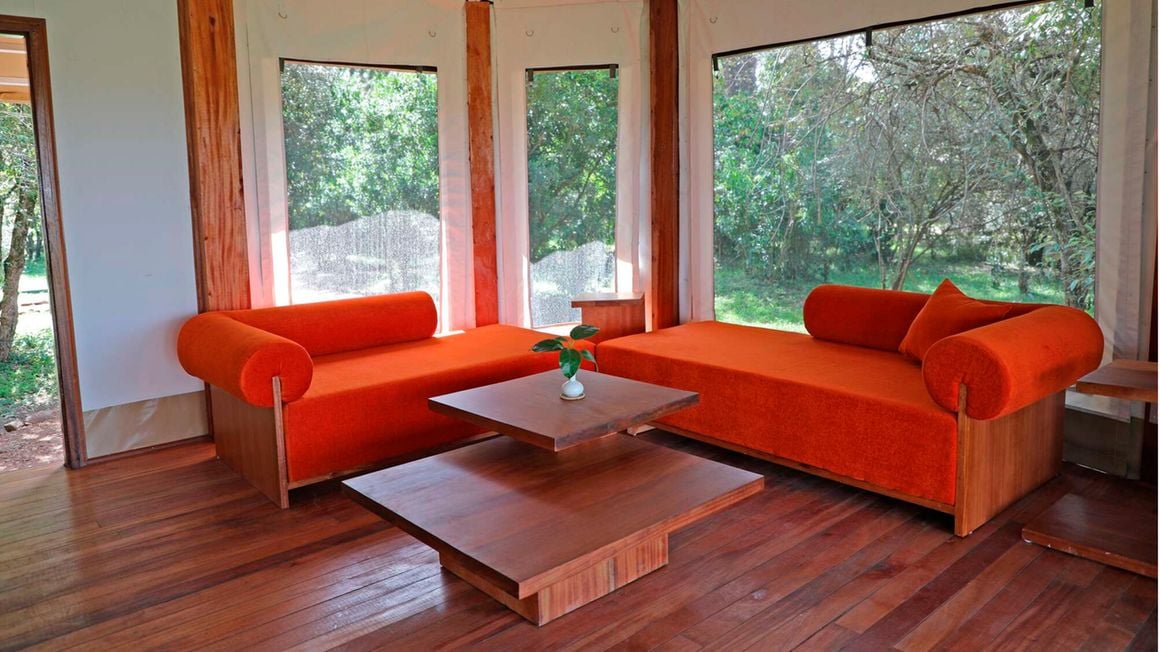
Ngerende in the Wild sits on 25 hectares, a 15-minute drive away from one of the key wildebeest migration crossings.
“Ngerende is a Maasai name meaning a flat area surrounded by hills,” she says.
The idea of building a lodge in Mara was mooted when she returned from the UK-based University of Plymouth for her Bachelor’s degree in 2004.
“I ventured into tourism because it is in line with my professional background. I studied business and tourism,” she says, adding “After graduating, I came back home and did research on a thesis titled ‘To Develop the Mara or Not’ through which I discovered that I wanted to venture into diversified lodges and that’s how Ngerende was born.”
Ms Kaigai recalls that the study concluded that it was important to develop the game reserve because it needed to be promoted. But she also discovered that development had to be done sustainably.
“The journey was quite seamless; we identified the site, which is Ngerende Island Lodge, which we opened in November 2008. After the Island, the guests were also getting interested in visiting the park, so we got an opportunity to expand here and opened Ngerende in the Wild, River View in 2012, and Lake View in 2013,” she says.
Ngerende in the Wild Lodge has eight suites whose construction cost Ms Kaigai pegs at $5.5 million (Sh775.2 million at current exchange rates) and can host 16 guests at one go, each paying $2,000 (Sh283,500) per night.
“Our target clientele are high-net-worth individuals who are able and willing to pay. Most of the ones that we’ve had over these years are international guests coming for holidays while locals account for a very little percentage,” she says.
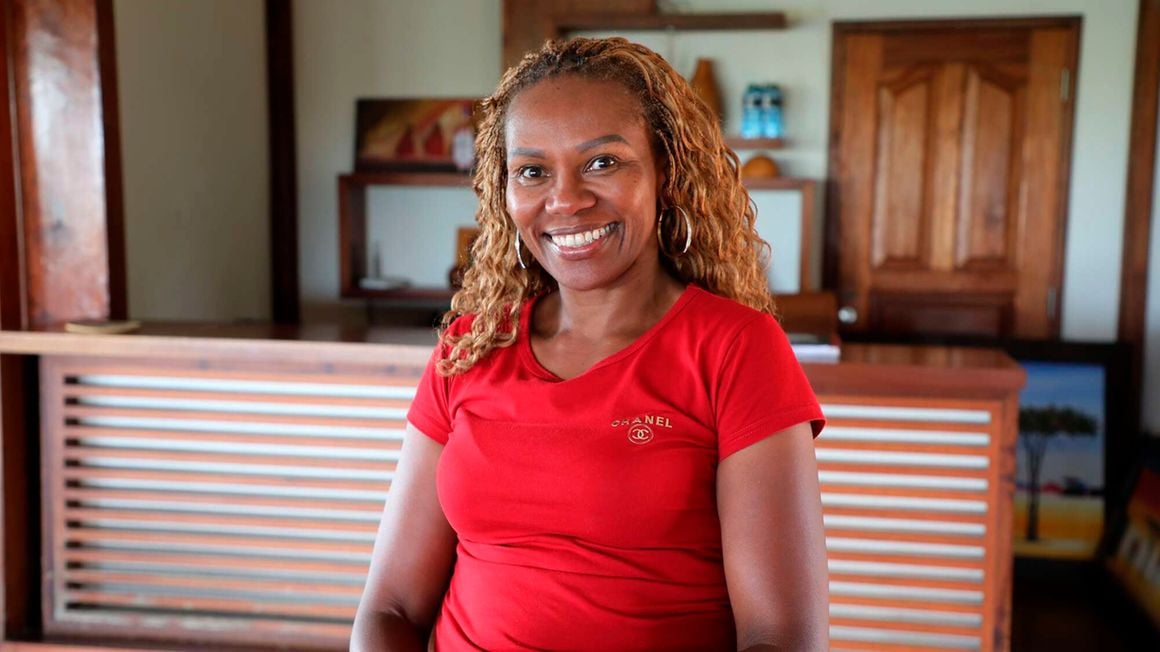
The lodge is operating on a 33-year land lease and remits $80 (Sh11,276) to the county government as park fees and $50 (Sh7,047) to individual landowners for every guest that is accommodated.
But has it been smooth all along?
The biggest hit was the demise of her husband, Robert, on July 4, 2019, whom she describes as her biggest support system.
“He is the one who did the design of all these suites. Without him lending a helping hand, I don’t think we would have got this far,” she says.
Ms Kaigai remains grateful that she still can use some of her late husband’s international connections to source for guests, a factor that puts her at par with other Maasai Mara lodges that are owned by foreigners.
Soon after Robert’s demise, the safari camp would undergo more turbulence ranging from the outbreak of the Covid-19 pandemic to protracted succession battles that left Ms Kaigai financially drained and emotionally exhausted, forcing the business to close in 2020.
The facility reopened its doors a few weeks ago.
Asked what sets her apart from peers in her trade, Ms Kaigai is forthright, “We have placed it upon ourselves to offer personalised attention and care to our guests. That is something you will not get elsewhere.”
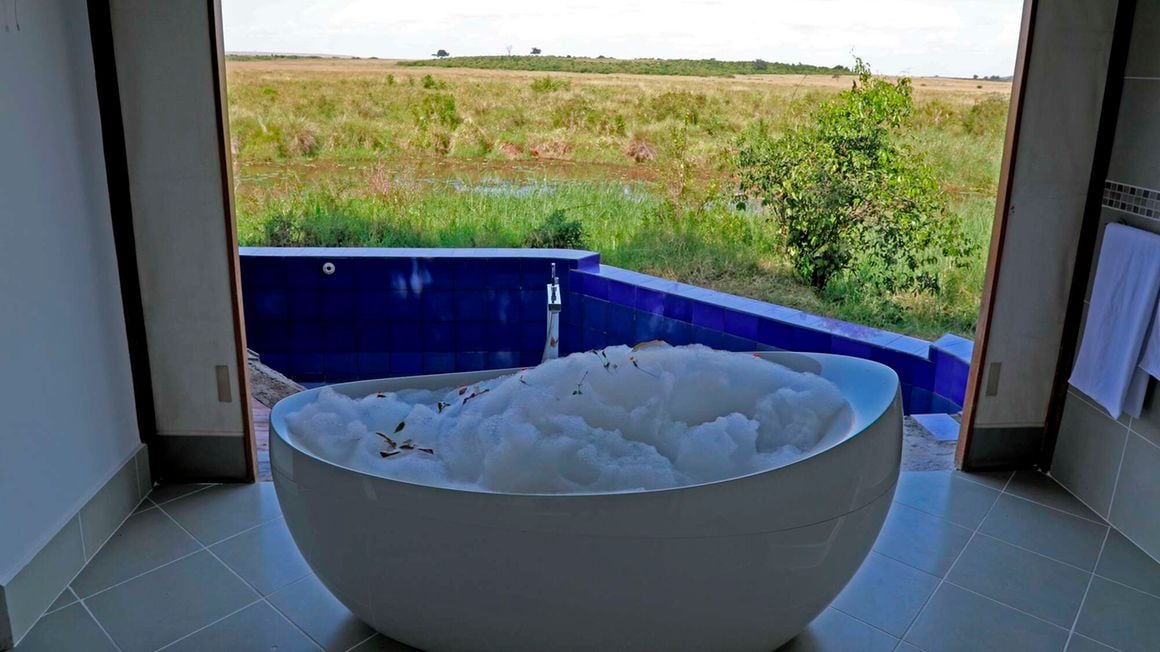
At this point, the clock hands indicate that it is some minutes past 11 am and the chat is interrupted by the tour guide, a gutsy middle-aged man wrapped in an alluring well-ornamented Maasai shuka, who calls on us to board a 4X4 van ready for what he describes as “the greatest show on earth” – the wild park tour.
The guide, Daniel Nabala, proves to be a seasoned professional as well as an experienced expert with an amazing eye for spotting animals even in their most discreet hiding joints.
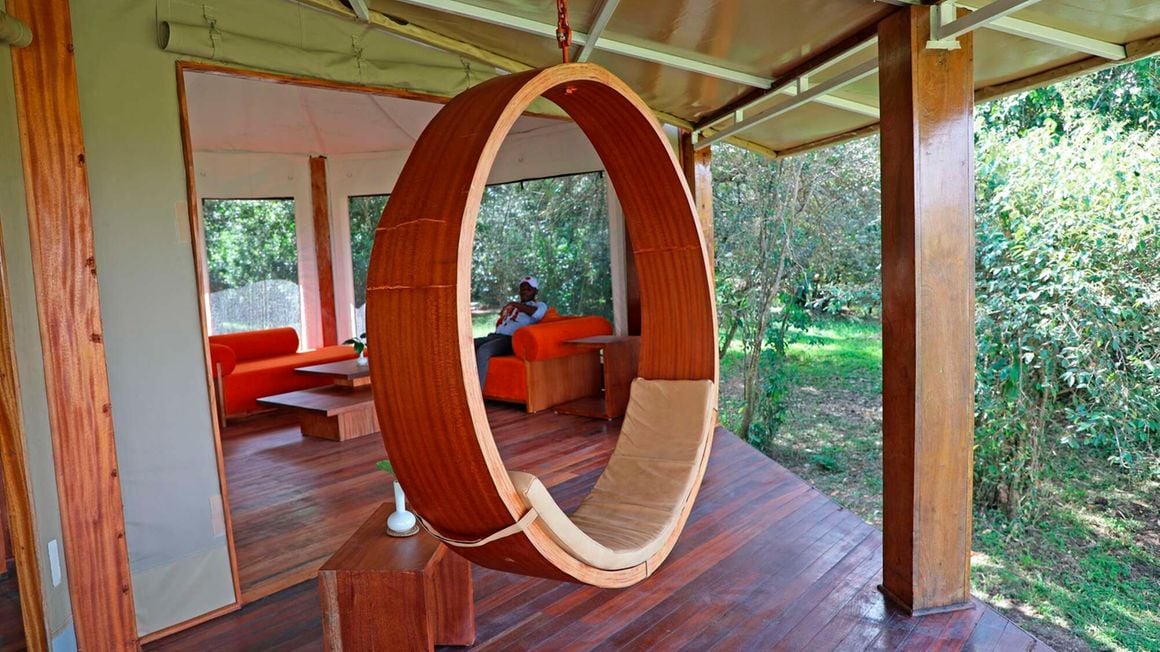
And the soft-spoken gent can be humorous to a fault!
An intimidating tower of giraffes is grazing along a riverbank in our full view and is seemingly unbothered by our presence.
One is tempted to alight and pose for a photo against their background, but Mr Nabala issues a frightening caveat to the effect that chances of re-boarding the van in one piece are almost close to nil.
A turn to the river opens a wowing sight of a tranquil co-existence between a float of crocodiles and a pod of hippopotamuses.
At the same spot, the guide points us in a direction, which he says is the first approaching route for the wildebeest migration spectacle that happens every year, expressing regret that we had to miss the manifestation for coming slightly earlier than the anticipated season.
At this point we demand, almost in unison, to view the king of the jungle — the lion — and Mr Nabala has got just the perfect idea of the spot where that could happen.
He misses the accuracy by just a bit and we get to only see the queen instead. This becomes the highlight of our park tour for a fairly trivial reason — a slight sneeze from the lioness sends the whole lot of us scampering for safety, leaving the guide in stitches.
The incident would occasionally be referenced for the rest of our stay and the absurdity of it never got watered down.
The peak of the luxurious air is the bush lunch. Everyone agrees that chef Musa Shikoli was just cut out for his job, to which he confirms that the taste is borne out of his passion for the trade.
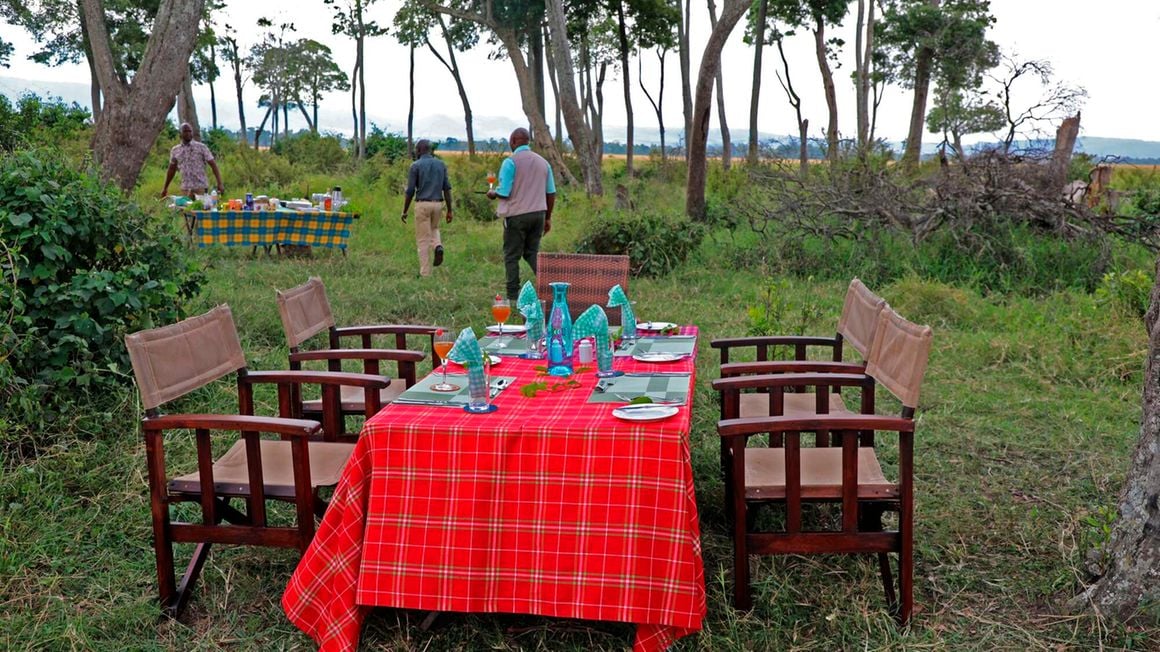
Caramelised pineapple, which is made by just smearing a piece of pineapple with butter and sugar before frying it in a pan, forms the acme of this meal stage for me.
We dash for the final lap of the wild tour as we battle to beat the gathering clouds, and during the rest of the three-hour adventure drive, we can’t help but marvel at the perfect organisation of different unmarked animal territories and how each group manages to stick to its lane.
A male buffalo mounts a female here, a birdy couple hangs out there, zebras graze as hyenas dash and so on.
As darkness falls, we are still craving for more but unfortunately, the show has to end.
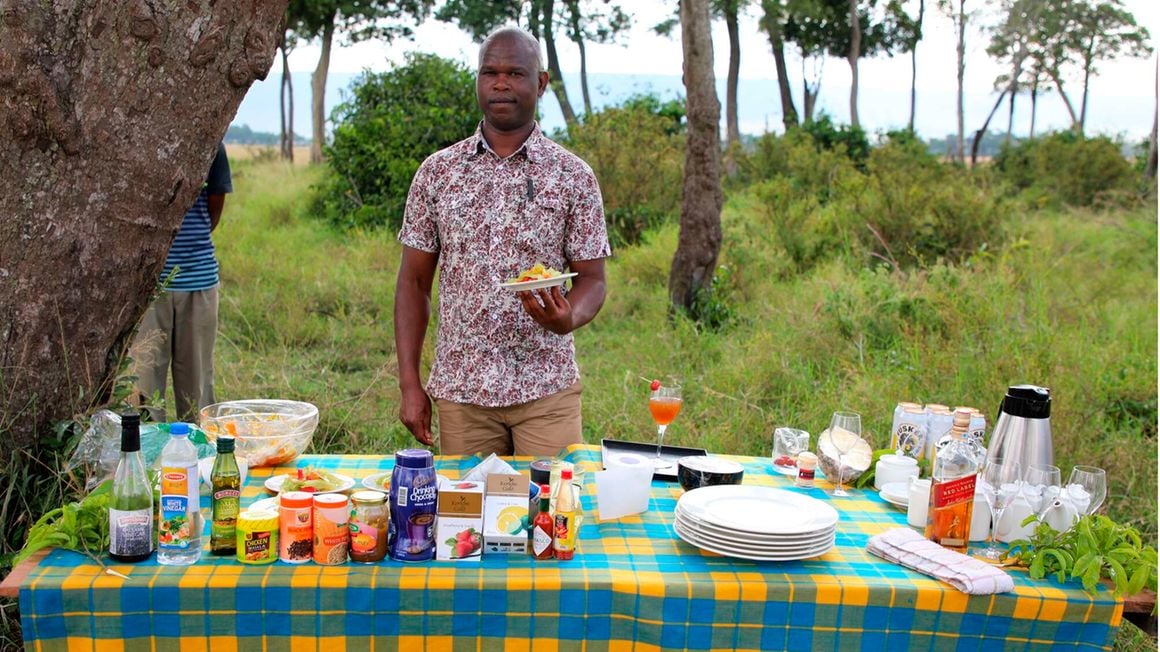
9.00 pm finds us sitting around a bonfire within the lodge and as is traditionally African for an evening fireplace, the stock of stories and tales is inexhaustible.
It is here that Ms Kaigai opens up about her personal life struggles, the highlight of which is the loss of her husband whom she speaks so passionately of.
“He {her husband] was such a solid support system. I only gain strength by knowing that he is watching over us together with my two daughters. I have vowed to do everything within my power to keep his legacy,” she says.
It strikes me how emotionally grounded she must be to manage to let out such a low-spirited story so animatedly and so cheerfully.
“Is re-marrying an option you would consider,” I ask cheekily to which she responds elusively but maintains a liking for white potential.
It’s 4.30am and it hits us that we’ve been sitting here for over seven hours. Oh! How time flies when you’re having a good time.
We part ways to our respective palatial tents to grab a brief nap, before rising a couple of hours later to bid goodbye to the opulence.
Credit: Source link